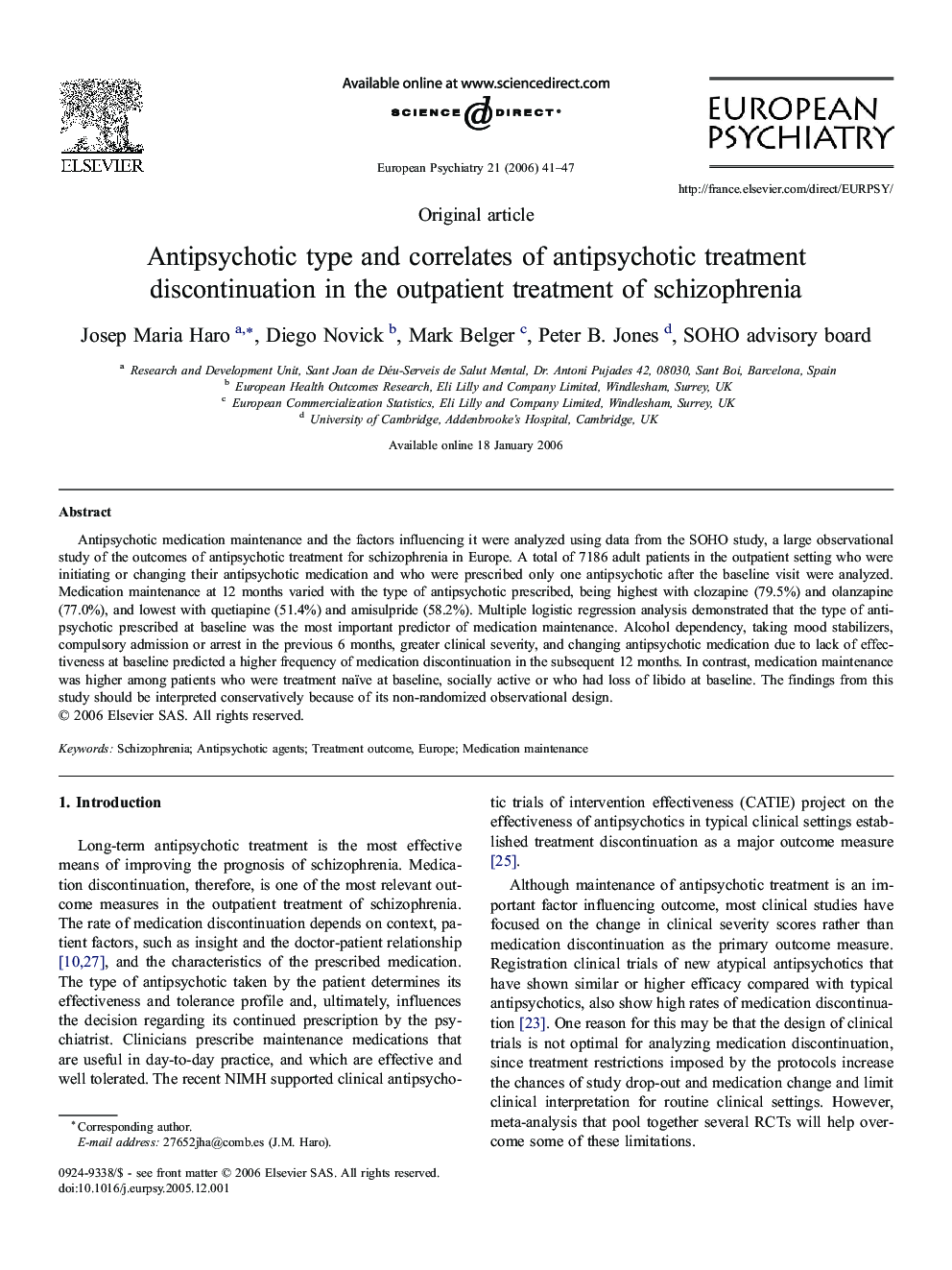| Article ID | Journal | Published Year | Pages | File Type |
|---|---|---|---|---|
| 4185838 | European Psychiatry | 2006 | 7 Pages |
Antipsychotic medication maintenance and the factors influencing it were analyzed using data from the SOHO study, a large observational study of the outcomes of antipsychotic treatment for schizophrenia in Europe. A total of 7186 adult patients in the outpatient setting who were initiating or changing their antipsychotic medication and who were prescribed only one antipsychotic after the baseline visit were analyzed. Medication maintenance at 12 months varied with the type of antipsychotic prescribed, being highest with clozapine (79.5%) and olanzapine (77.0%), and lowest with quetiapine (51.4%) and amisulpride (58.2%). Multiple logistic regression analysis demonstrated that the type of antipsychotic prescribed at baseline was the most important predictor of medication maintenance. Alcohol dependency, taking mood stabilizers, compulsory admission or arrest in the previous 6 months, greater clinical severity, and changing antipsychotic medication due to lack of effectiveness at baseline predicted a higher frequency of medication discontinuation in the subsequent 12 months. In contrast, medication maintenance was higher among patients who were treatment naïve at baseline, socially active or who had loss of libido at baseline. The findings from this study should be interpreted conservatively because of its non-randomized observational design.
